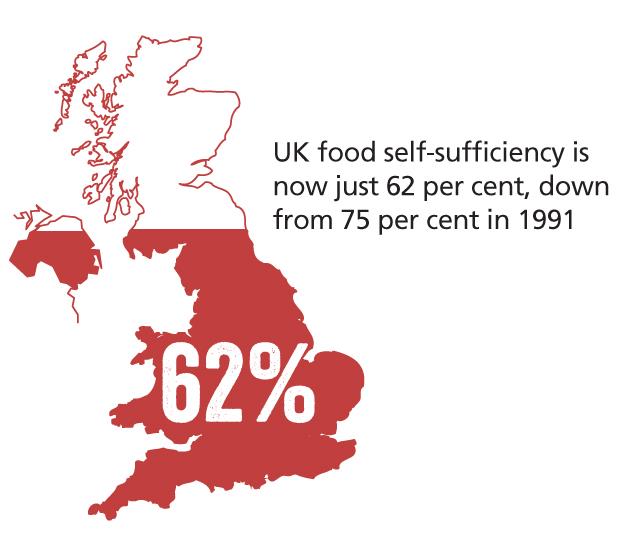
The average suckler herds made a net loss of £218 a cow. Farms finishing cattle up to 16 month, 24 months, (as we do) can lose as much as £200 a head.
Arable farmers watch as wheat prices flat line, now and for the foreseeable future. Even demand for hay and straw has dropped. Pig producers watch in despair as prices continue to tumble. Only finished lamb prices have crept up a little, but are still well below the fairly poor prices of last year.
The pound is strong, and the Euro is weak. There is declining opportunities to access the Chinese and USA markets, so vital to prop up demand. We are increasingly reliant upon domestic consumption, which is naturally a ‘gift’ to the retailers, who know it. To give her her due, Defra secretary Liz Truss is working hard on behalf of British farm producers, and has once again led a trade mission to China, in a bid to accelerate British exports into the world’s largest market. Sales have increased steadily over the past few years but there is a long way to go. The potential in this vast market is massive and is well worth the effort.
British shoppers are becoming increasingly careful, and as the cost of the weekly shopping basket drops, they are not buying more. As farmers become more productive, the public seem to be cutting back on food, and the result is toxic for the industry.
Each week yet more dairy farmers decide to understandably, throw in the towel and sell their cows. Some revert to beef farming or plough up their pastures, or they sell to absentee owners with little or no understanding of the countryside, let alone farm management.
When the time comes and it is acknowledged how important it is for the UK to be self-sufficient in food production, it could well be too late. Too much land will have been turned over to housing and new towns. Even if the land were still available, it takes time to re-establish and build new herds of cattle, and the expertise can be lost in just one generation.
It has been said many times before, but it is worth repeating, unless British farming is supported and we buy home grown produce, and lots of it – use it or lose it – the consequences will be more serious than many now recognise.
It seems that the Rural Payments Agency has managed to get its act together and distribute farm payments on time, to many farmers now desperately trying to pay bills despite receiving below the cost of production for the commodities they produce. So far we have not received ours but I am told there have been welcome cheques dropping onto door mats last week.
Mark Grimshaw, chief executive of the RPA has said that he recognises that the payments are important not only to the farmers but also to the wider rural economy, as the money will not hang around in farm bank accounts. It will immediately be spent on goods and services, and in turn, keep other rural businesses going. Interestingly, it is estimated that for every pound sent out as BPS payments, there is a multiplier of four pounds into the wider economy.
The floods in Cumbria and the north east have caused devastation to families, businesses and farmers once again. For those in and around Carlisle, this is the second time they have faced this situation in the past ten years. The amount of rain, up to 10 inches over the weekend, is almost impossible to cope with for local and natural drainage. Rising water on this level is impossible to deal with, and the dreadful aftermath of filth, decay and debris on such a massive scale, will take months, and in some cases years to put right.
Contingency plans and funding is where government money should be targeted. The £millions already spent by the Environment Agency may have delayed some flooding, but additional funds need to be made available, to ensure rivers and ditches are more able to cope with excessive rain fall which has been predicted, as well as funding to help clean up.
For years these budgets have been slashed across the country and as areas which in the past have acted as natural drainage and flood plains are now covered in concrete with housing, development and roads, it is vital to address this matter.
Planners should also take more notice of local concern and local knowledge, and refrain from further development where flooding is inevitable.
The government must create a War Chest, not to fight Nature but prepare for and deal with the fall-out from what she can throw at us. Perhaps this could be linked in some way to the National clean-up which is planned to coincide with the Queen’s 90th birthday celebrations.


 RSS Feed
RSS Feed